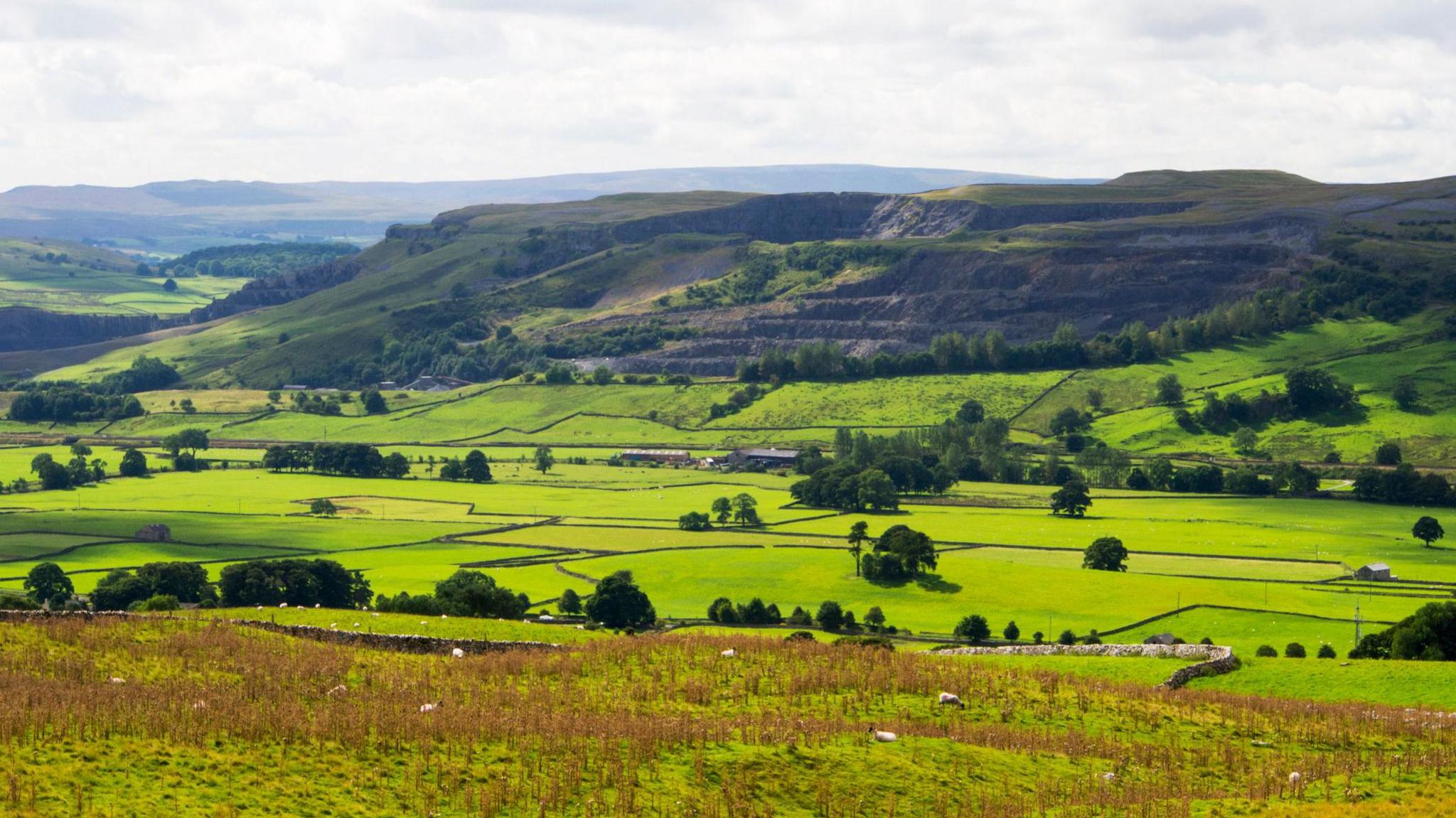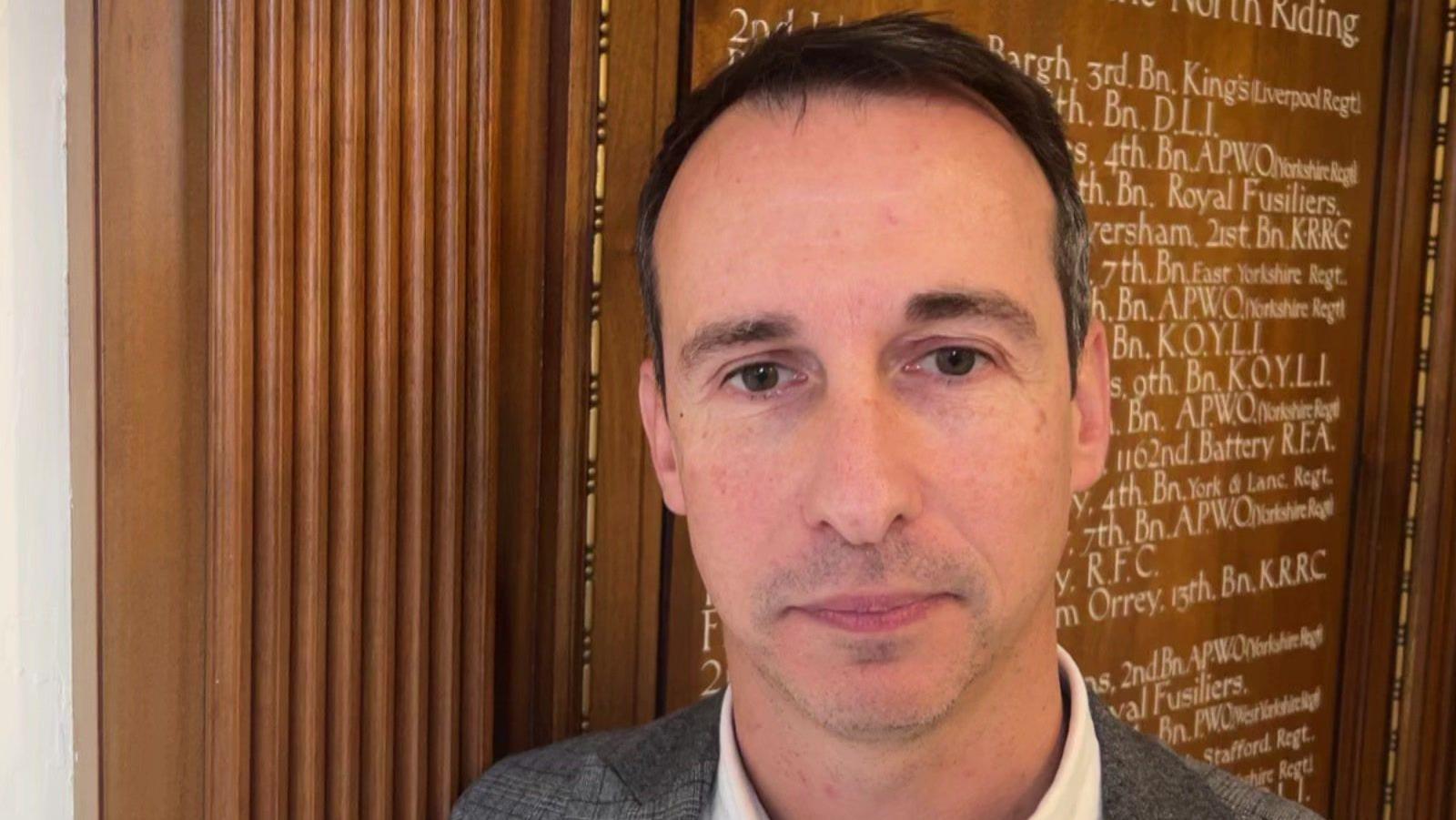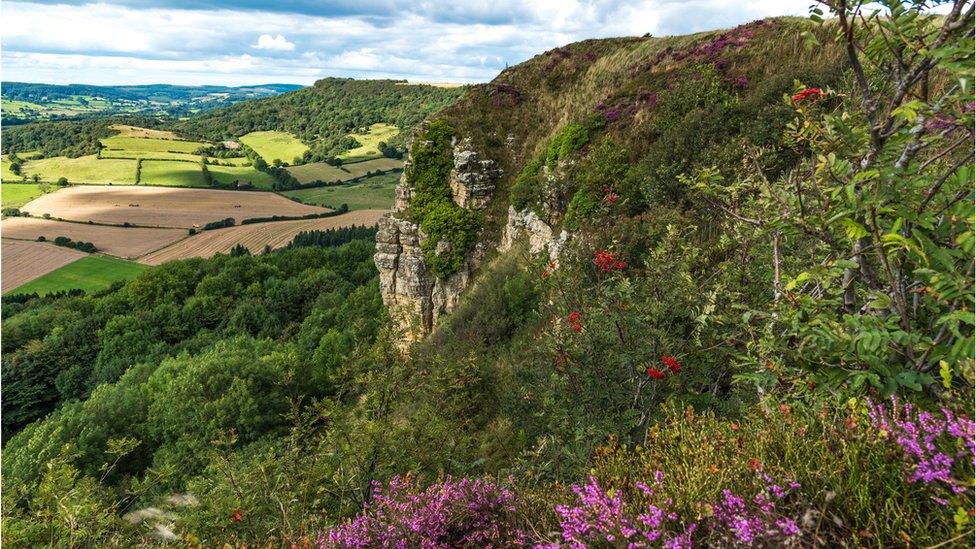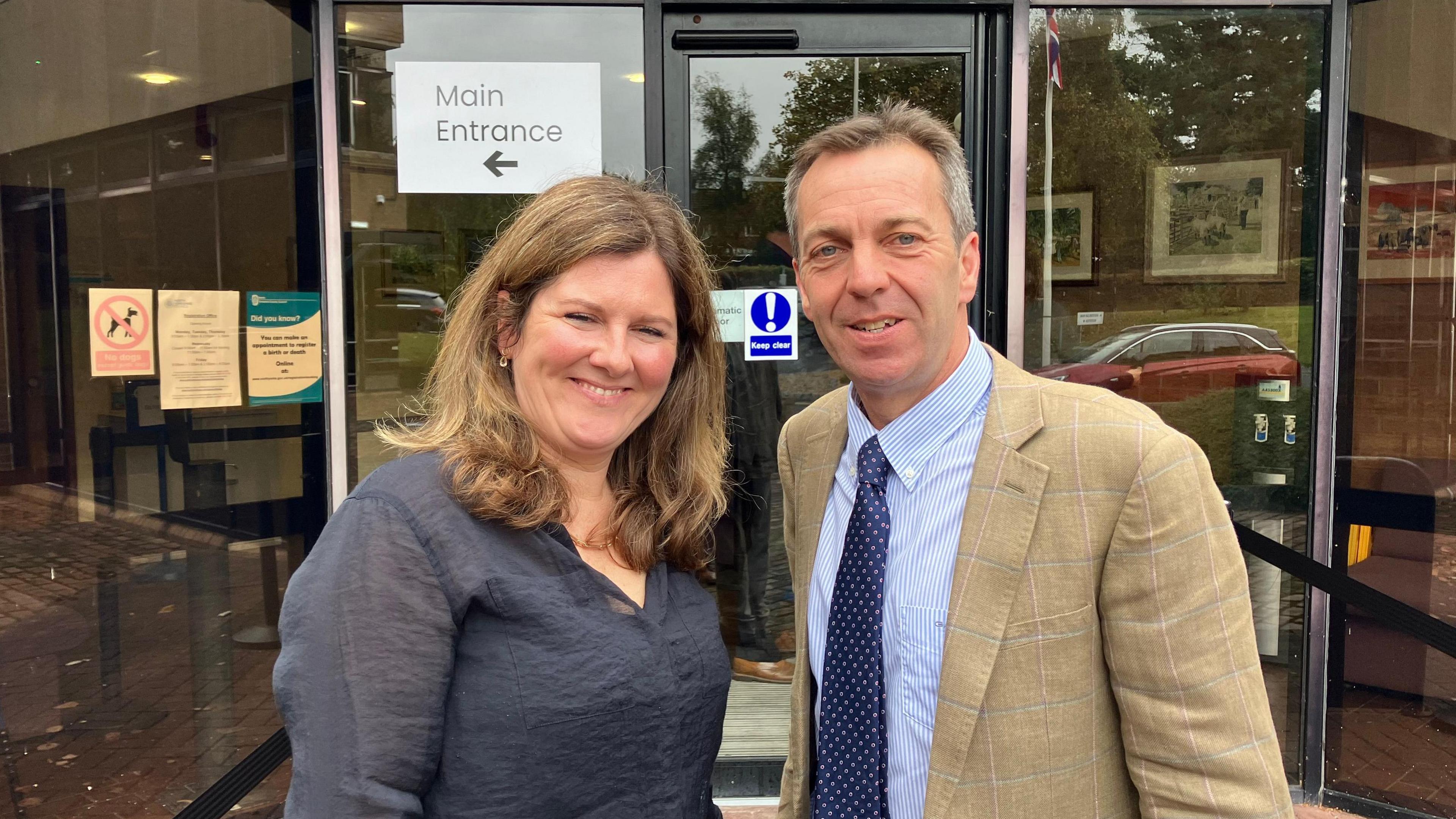Plan for solar farm next to national park rejected

Plans for a solar farm on the edge of the North York Moors National Park have been rejected by North Yorkshire Council
- Published
An energy company has said it will appeal a council's decision to reject its plans for a new solar farm.
North Yorkshire Council's planning committee turned down Lightrock Power's application for the development in Husthwaite earlier because it would have been built on "high quality" agricultural land.
The site, near Easingwold on the edge of the North York Moors National Park, is called Woolpots and has been the subject of a two-year battle fought by campaigners who are opposed to it.
Lightrock said the farm would have powered thousands of homes, but the committee refused it by eight votes to four.

Husthwaite parish councillor Chris Nichols has said there is nervousness as the applicant could appeal
The meeting was told that 70% of the land covered by the proposal was high-grade farmland.
Speaking after the decision, Husthwaite parish councillor Chris Nichols told the BBC: “There is huge relief for the villagers, for myself, for members of the action group that have been fighting this. There is still nervousness, as the applicant says it will dispute the decision.
“It has been tiring and a very long journey we’ve been on. We’re incredibly thankful the committee have supported the planning officers’ recommendation for refusal today.”
Lightrock’s agent told the meeting that the farm – if approved – would only cover 35 hectares of the best agricultural land.
He said that represented just 0.004% of the top quality farmland available in North Yorkshire.
Councillor Andy Brown, who represents the Aire Valley division for the Green Party, voted in favour of the solar farm being built.
He said that, on a site visit, the view was already dominated by pylons – and he saw just one insect and very few birds.
“The main use of the land is grass grazing by sheep. If we have a condition for no spraying, we could have a biodiversity net gain,” he added.
But Oatlands and Pannal Conservative councillor John Mann voted against, and said: “If we want to save the planet, I don’t think importing large quantities of food from the other side of the world is sustainable. The emissions associated with that are horrendous. We need a sustainable agriculture policy to produce as much of our food as possible on our best agricultural land.”
Listen to highlights from North Yorkshire on BBC Sounds, catch up with the latest episode of Look North or tell us a story you think we should be covering here, external.
Related topics
- Published19 January 2023

- Published1 October 2024
